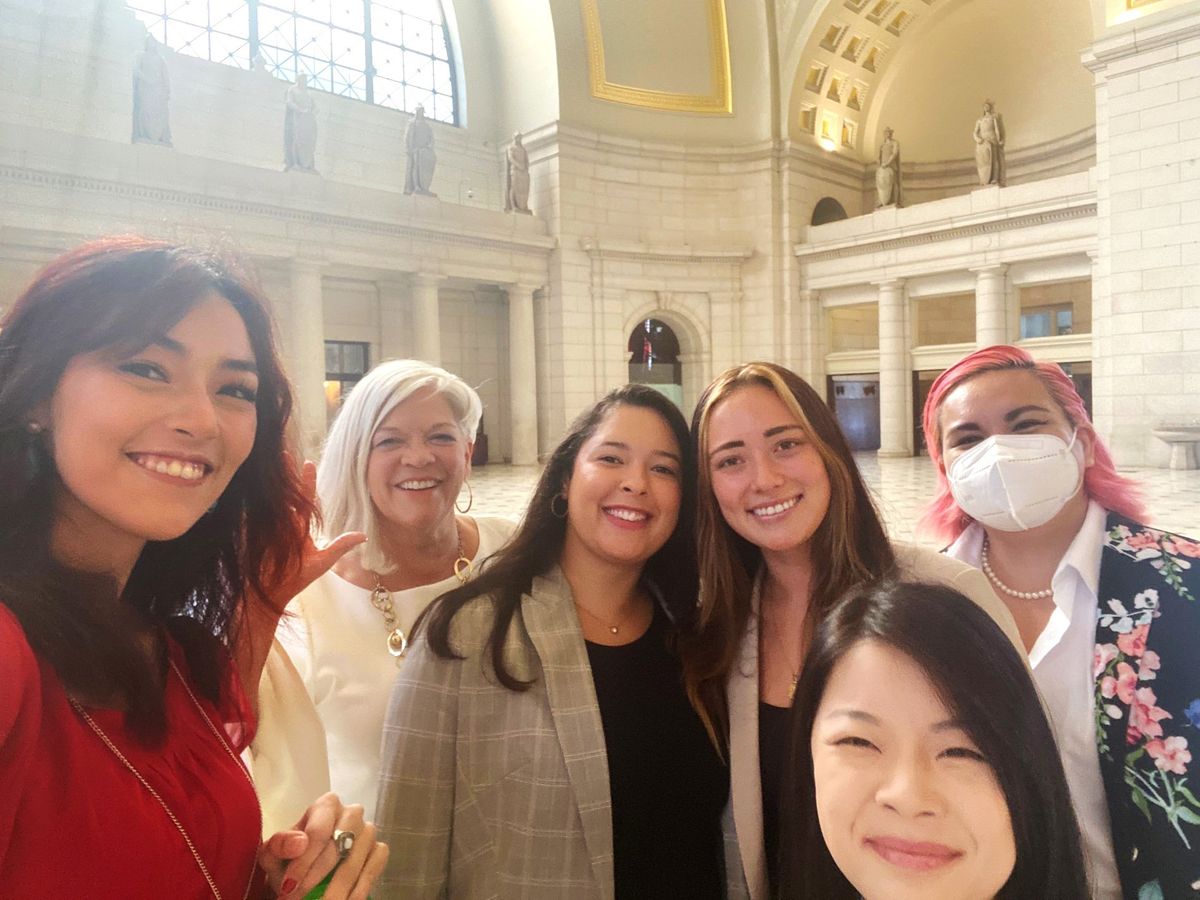More than 100 IEEE members participated in the annual IEEE-USA Congressional Visits Day (CVD), held this year on 4 and 5 April in Washington, D.C. The 2023 event had more IEEE members involved than in any other year. CVD brings together engineers, researchers, technology executives, and others to raise visibility of and support for engineering and technology among members of the U.S. Congress.
For the first time in the event’s nearly 30-year history, IEEE representatives from the IEEE Hawai’i Section attended. The delegation included five students from the University of Hawai’i at Mānoa Richardson School of Law. Samantha Barth, Chloe Berridge, Skye A’olani Jansen, Tatyanna Serraro, and Irene Sun are taking classes in artificial intelligence and social justice taught by IEEE Member Emile Loza de Siles, who accompanied the students. Loza de Siles, an assistant professor of law at the university, teaches systems engineering and other technology-informed approaches to AI governance in the public and private sectors. She is a member of the IEEE-USA AI Policy Committee (AIPC).
“With artificial intelligence a hot topic in the news and AI technologies rapidly proliferating,” Loza de Siles says, “there is an urgent need for legal experts and technology professionals to come together and work to inform the development of sound AI law and policy.”
Advocating for AI regulations
On 5 April, Loza de Siles and the students participated in 20 congressional meetings with legislative counsels and other professional staff working for all four members of Hawai’i’s congressional delegation. They also met with senators and representatives from California, New York, Pennsylvania, and Utah.
The IEEE-USA group advocated for the proposed Algorithmic Accountability Act, which covers data privacy and protection legislation, and AI regulation designed to protect consumers and foster the development of trustworthy markets and innovation.
“Interdisciplinary approaches to technology law and policy are critically important to the future of this nation and the world,” Loza de Siles says. “Collaborations with our IEEE colleagues, including through CVD and other initiatives, are precisely the type of informed and powerful engagement needed in today’s intensive law and technology policy domain.
“The impact of my students’ CVD participation,” she adds, “was truly transformative. They now see themselves confidently, capably, and more importantly in future policy roles. At least one has announced her plans to run for elected office. We need technology-informed leaders in public service.”
The Hawai’i delegation’s trip was funded by the Richardson Dean’s Innovation Fund.
“Its support for this prestigious national first experience has opened up a clear path for our students’ impactful contributions as they move forward into public and private practice,” Loza de Siles says.
AI policy committee in action
The AIPC, composed of IEEE members with expertise in the technology, produces the position statements that IEEE-USA staff use to guide legislative advocacy. The committee provides input on federal agency rulemaking and congressional legislative proposals. It is also involved with advocacy efforts, working with the U.S. administration and federal agency officials. IEEE-USA’s goal is to ensure that public policymakers have the information and expertise required to implement informed laws and regulations aimed at controlling the impact of AI on society.
As the 118th U.S. Congress addresses AI governance via legislation, IEEE’s members are at the table, Loza de Siles says. They meet with members of Congress to present expert technical advice. The committee recently met with the staff of Senate Majority Leader Chuck Schumer, a Democrat from New York. In June, the senator launched the SAFE Innovation Framework, the basis for future legislation designed to require AI systems to be transparent, explainable, and auditable. The framework also is expected to address intellectual property as well as copyright and liability concerns.
That is just one example of the many activities that are being undertaken on members’ behalf, Loza de Siles says.
“As the development of AI technologies accelerates,” she says, “so do the levels of fear, wonder, and the need to control the impacts of the fast-moving technologies.”
Our thoughts are with those from the IEEE Hawai’i Section who might have been affected by the devastating Maui wildfires. If you want to donate to help those impacted by the fires, here are some ways to do so:
The American Red Cross, the Hawai’i Community Foundation, Maui United Way and the Maui Food Bank.
- The Who, Where, and How of Regulating AI ›
- The AI Apocalypse: A Scorecard ›
- A Roadmap for Regulating AI Programs - IEEE Spectrum ›



